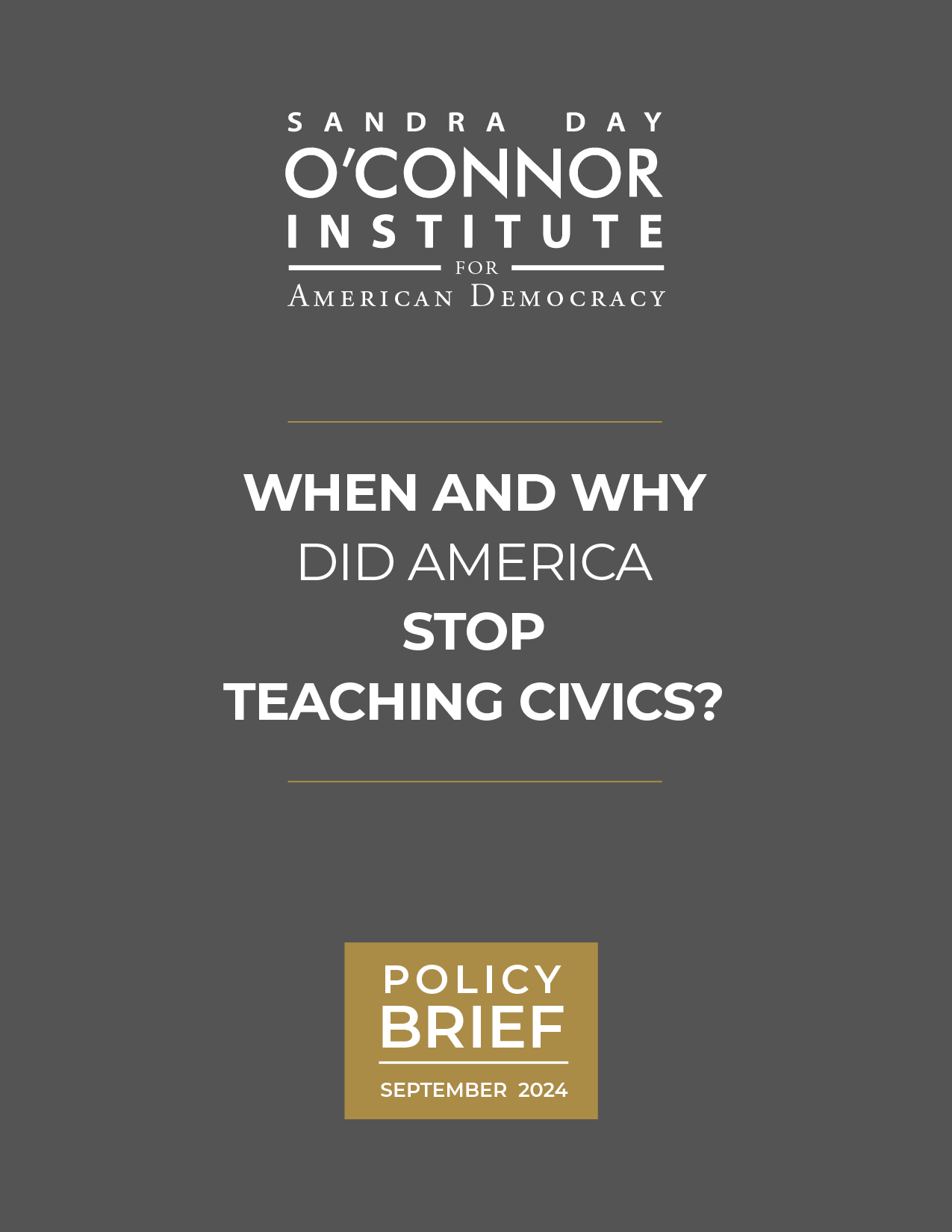When and Why Did America Stop Teaching Civics?
The research is clear: study after study shows that we Americans don't know civics. This is especially the case for younger Americans, who data reveal to be less informed about civics than their older counterparts. Obviously there is a need for more and better civic education in schools, a proposition that consistently receives strong bipartisan support. Yet American public schools are not as a rule prioritizing civic education. Why is this so?
Findings
-
- The time devoted to civic education in American public schools began to significantly decline in the 1960s.
-
- Civic education has not for many decades been prioritized by federal or state government; time devoted to civics has also declined due to unintended consequences of other educational focuses (see, e.g., STEM and No Child Left Behind).
-
- The time spent in schools on civics declines when civic education itself is seen as controversial.
-
- Educators in K-12 schools feel unprepared to teach civics.
-
- Younger Americans are less knowledgeable about civics than previous American generations.
In The News
Press Release: Schools Teach Less Civics When Civics Becomes Controversial, Sandra Day O’Connor Institute Reports
Real Clear Politics: For More Civics in Schools, Dial Down the Controversy
The Hechinger Report: Students want more civics education, but far too schools teach it

Liam Julian | Vice President, Programs & Public Policy
Liam Julian is Vice President of Programs & Public Policy at the Sandra Day O’Connor Institute for American Democracy. He was previously managing editor of Policy Review magazine in Washington, D.C., and a research fellow at Stanford University’s Hoover Institution. His writing and commentary on public policy have appeared in publications such as The Washington Post, The Atlantic, National Review, and RealClearPolitics, and on NPR programs including Morning Edition and All Things Considered. He also directed development of Advanced Placement curricula at the College Board, including leading the redesign of the AP U.S. Government and Politics course.
For more information about this policy brief, contact him at ljulian@oconnorinstitute.org


